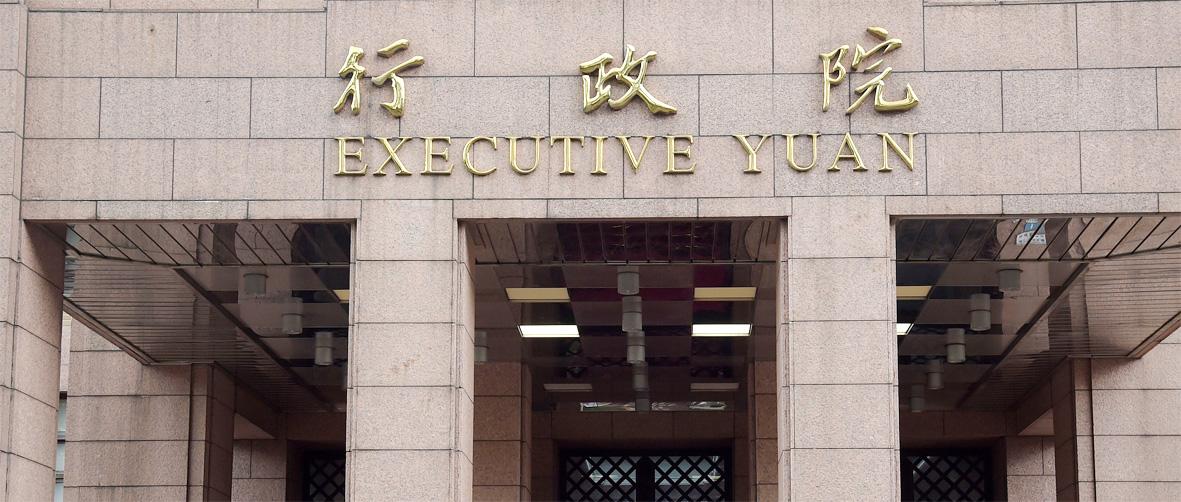The Executive Yuan’s Department of Cybersecurity last month detected 99,293 cybersecurity threats involving the government’s backbone networks, or the highest number of monthly incidents in nearly two years, according to the department’s monthly cybersecurity bulletin.
The report said that 40 percent of the incidents have yet to be investigated, while 23 percent were confirmed cyberattacks and 18 percent were probes.
While the amount of cyberattacks and probes falls within expectations, the large number of unidentified incidents is cause for concern, department Director-General Jyan Hong-wei (簡宏偉) said yesterday.

Photo: CNA
“In some cases, a judgement cannot be made immediately following an incident report,” he said.
“These incidents have to be matched against the tracking database, while further analysis and investigation could take time, ranging from many months to a year,” he said.
“We have to understand what they are: whether they are a novel form of attack or whether they foreshadow a large-scale attack,” he added.
Fifty-two of last month’s incidents were reported while the incident was happening, and the majority of those were detected by information technology centers, the report said.
Among these incidents, 53.8 percent involved malware, denial of service attacks and insertion of cryptocurrency mining software, the report added.
Notably, a state apparatus listed is category A regarding cybersecurity responsibility suffered a breach of its noncore operating system in the form of Domain Name System tunneling, the report said.
It is believed that a hacker used a Structured Query Language injection technique to attack a platform for renting public venues and obtained system administrator privileges, the report said.
The affected server was removed from the network and its data was backed up for outside security firms to examine, it said.
“This incident illustrates the point that hackers might target noncore operating systems for attack,” the report said.
“This really should not have happened,” Jyan said. “Although most apparatuses are focused on securing core operating systems, the department remains highly concerned with the noncore systems that could become gaps in our defense.”
“The monthly report is a reminder to government agencies that all systems need to be tested for weaknesses and their vulnerabilities patched,” Jyan added.

US President Donald Trump yesterday announced sweeping "reciprocal tariffs" on US trading partners, including a 32 percent tax on goods from Taiwan that is set to take effect on Wednesday. At a Rose Garden event, Trump declared a 10 percent baseline tax on imports from all countries, with the White House saying it would take effect on Saturday. Countries with larger trade surpluses with the US would face higher duties beginning on Wednesday, including Taiwan (32 percent), China (34 percent), Japan (24 percent), South Korea (25 percent), Vietnam (46 percent) and Thailand (36 percent). Canada and Mexico, the two largest US trading

AIR SUPPORT: The Ministry of National Defense thanked the US for the delivery, adding that it was an indicator of the White House’s commitment to the Taiwan Relations Act Deputy Minister of National Defense Po Horng-huei (柏鴻輝) and Representative to the US Alexander Yui on Friday attended a delivery ceremony for the first of Taiwan’s long-awaited 66 F-16C/D Block 70 jets at a Lockheed Martin Corp factory in Greenville, South Carolina. “We are so proud to be the global home of the F-16 and to support Taiwan’s air defense capabilities,” US Representative William Timmons wrote on X, alongside a photograph of Taiwanese and US officials at the event. The F-16C/D Block 70 jets Taiwan ordered have the same capabilities as aircraft that had been upgraded to F-16Vs. The batch of Lockheed Martin

China's military today said it began joint army, navy and rocket force exercises around Taiwan to "serve as a stern warning and powerful deterrent against Taiwanese independence," calling President William Lai (賴清德) a "parasite." The exercises come after Lai called Beijing a "foreign hostile force" last month. More than 10 Chinese military ships approached close to Taiwan's 24 nautical mile (44.4km) contiguous zone this morning and Taiwan sent its own warships to respond, two senior Taiwanese officials said. Taiwan has not yet detected any live fire by the Chinese military so far, one of the officials said. The drills took place after US Secretary

CHIP EXCEPTION: An official said that an exception for Taiwanese semiconductors would have a limited effect, as most are packaged in third nations before being sold The Executive Yuan yesterday decried US President Donald Trump’s 32 percent tariff on Taiwanese goods announced hours earlier as “unfair,” saying it would lodge a representation with Washington. The Cabinet in a statement described the pledged US tariffs, expected to take effect on Wednesday next week, as “deeply unreasonable” and “highly regrettable.” Cabinet spokeswoman Michelle Lee (李慧芝) said that the government would “lodge a solemn representation” with the US Trade Representative and continue negotiating with Washington to “ensure the interests of our nation and industries.” Trump at a news conference in Washington on Wednesday announced a 10 percent baseline tariff on most goods